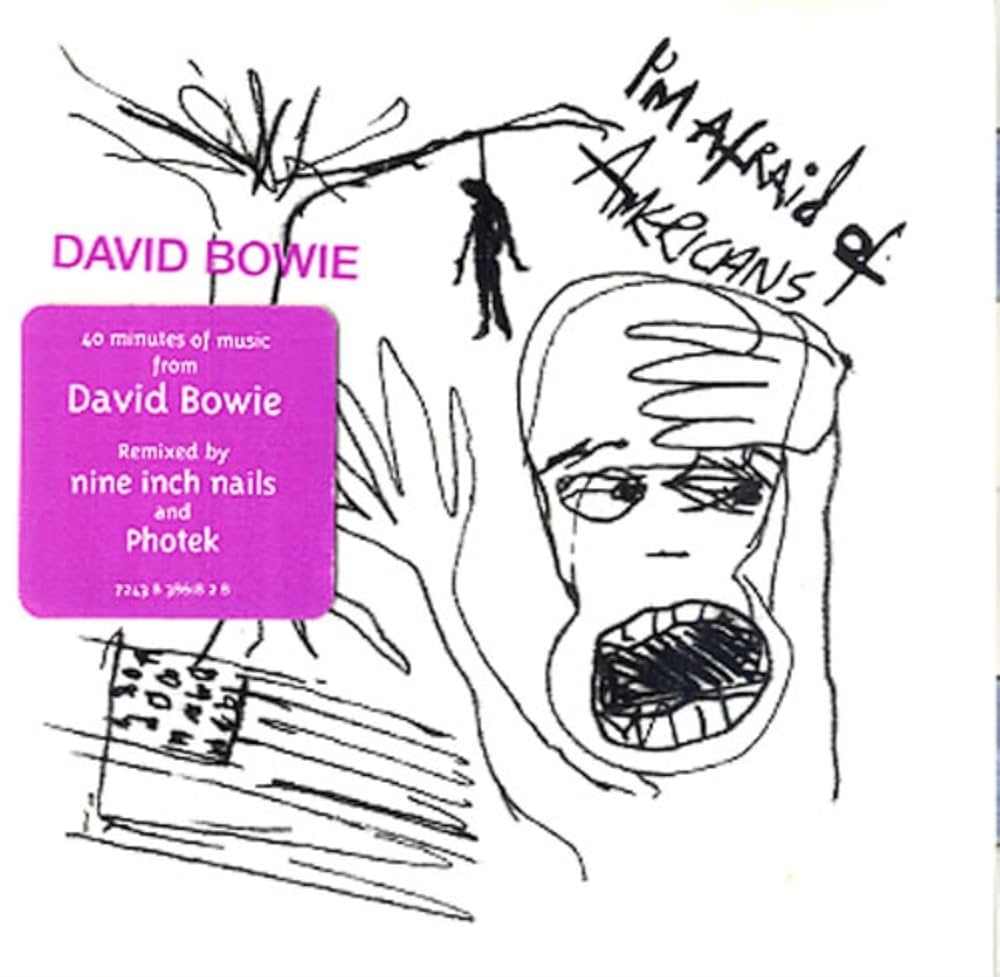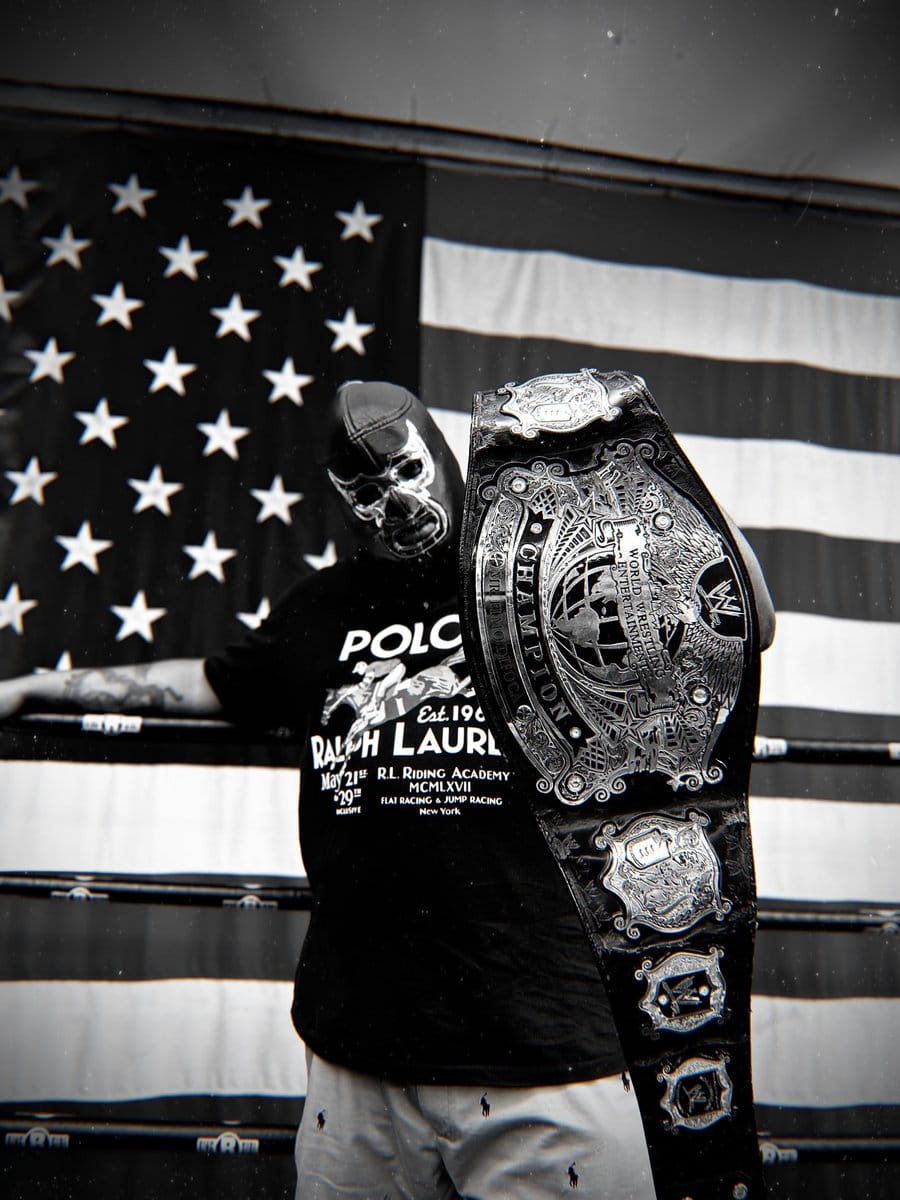POTLUCK: A Bruiser Wolf Joint
Mapping the 'Bamboozled' to Bruiser Brigade pipeline. +reviews of Gridiron and Lord OLO & TELEVANGEL


Regardless how things play out for the 2025 New York Knicks, local basketball superfan Spike Lee already knows his way around a flop. Despite an impressive run of original, oft audacious films beginning in the 1980s, by the mid-1990s the director began to see his creations falter at the box office. Adapted from Richard Price's crime novel of the same name, 1995's Clockers grossed well below its $25,000,000 budget, an undesirable feat repeated on the subsequent Girl 6. The financial pain lessened for his remaining features from the decade, He Got Game and Summer Of Sam, though neither recouped theatrically. With the benefit of hindsight, most of these are retrospectively considered favorably and even enjoy somewhat regular repertory screenings in his hometown's theaters. But try telling that to Mr. Lee back in 1999.
When the business of entertainment seemed to be against him, Lee struck back in the fall of 2000 with Bamboozled. Shot economically on digital video and 16mm film stock, the bleak satire had little to offer audiences who'd flocked to multiplexes for Gladiator, Mission: Impossible 2, and X-Men earlier in the year. Instead, this 136-minute indictment of the endemic issues in Black entertainment– not the least of which being cultural appropriation and institutionalized racism–played at a couple hundred cinemas in total over a seven-week period that included two opening weekends in what the industry dubs "limited release." Its contentious premise, its unflinching depictions of minstrelsy, and the inherent, perhaps intentional ugliness of the MiniDV footage made it one of Lee's most provocative pictures, polarizing both then and now.
Last weekend, I attended a Bamboozled screening at Metrograph, a hip cinephile haven in the downtown Manhattan neighborhood dubiously branded Dimes Square. Though not my first time seeing the film, which I'd caught on DVD back in the early 2000s, I appreciated it a great deal more on the big screen some 25 years after it premiered in this city. It starts out ostensibly as a comedy, pointedly poking fun at Michael Rappaport's absurd TV exec arrogance and Damon Wayans' permanently code-switched showrunner, before inevitably taking a fairly hard left into anguish and despair. By destructive design, there's no conceivable way it could've ended well, and that was very much part of the point.
Yet before everything falls apart, Lee presents viewers some truly memorable scenes, among them a hilarious send-up of Ving Rhames' 1998 Golden Globes hand-off to Jack Lemmon, with Wayans parodying the on-stage incident with Matthew Modine (who he confuses with Matt Dillon). Still, the funniest part of Bamboozled comes courtesy of the late, great Paul Mooney, who plays Wayans' character's comedian father Junebug. Though it lasts roughly seven minutes of screen time, his is the best damn role in the whole entire movie. Reduced to performing his stand-up act sitting down at seemingly disreputable establishments, he gives the attendees of Mama's Sugar Shak a broad smile and a litany of insightful one-liners, set-ups, and punchlines. Afterwards, he sits in a modest green room dressed entirely in orange with his son, drinking and reflecting on how he ended up here:
"I got too much pride, dignity, integrity. I can't do that Hollywood stuff, man. I can't say that stuff they want me to say."
(Just a few years later, Mooney would become a standout presence on Chappelle's Show, a boundary-pushing program that eerily proved Bamboozled's prescience when its hugely popular host fled the sketch show amid personal, existential crisis and mounting concerns over just what exactly its white audiences were laughing at.)
Bruiser Wolf reminds me of Junebug. Not in that backstage conversation with his disillusioned son trying to make sense of how someone so damn funny could end up shuffling through the remnants of a comedic Chitlin' Circuit. Rather, the Detroit rapper's knack for inventive, well-crafted punchlines mirrors Mooney's crowd-pleasing quips at Mama's. Respectively, their writing lands hard, the brazen naughtiness of the subject matter eliciting deeper laughs and wider grins.
On his first two Bruiser Brigade Records albums, 2021's Dope Game Stupid and 2024's My Story Got Stories, Wolf distributes street jokes about street shit. Drug dealer content may be a hip-hop staple, but few artists cover it as cleverly as he does. This way, he carries on in a legacy that includes proto-rap icon Rudy Ray Moore and carries through Too $hort and Suga Free, Lil Wayne and Ludacris, Big Sean, Danny Brown, RXK Nephew, $ilkmoney, and so on. Yet that same legacy also encompasses Paul Mooney, as well as his erstwhile writing partners Redd Foxx, Richard Pryor, and Eddie Murphy. No reasonable student of the rap craft would see it otherwise.
Wolf's third full-length POTLUCK rides the momentum of those previous albums with a further refinement of his reliable formula. Sentences or phrases start like idiosyncratic non sequiturs, somehow finishing strong with contextualized or deconstructed wit. On opener "Say No More," he recites a familiar refrain about going back to pushing weight if his rap career doesn't pan out–only when he does it, there's an accompanying wink. Seconds later, he's found a neat way to point out how the word live is evil backwards. The speed with which these things drop leaves no space for awkward pauses or audience gauging. Wolf is off to the proverbial races with every track, a superfecta wager burning a hole in his pocket.
Not long thereafter, "Air Fryer" kicks off with a line–I talk white / and sling ebonics—that echoes one told by Mooney's Junebug. Wolf's self-amusement with such bon mots frequently compels him into repetition, making "Beat The Charge" feel dizzyingly circular as four bars recur less like a chorus than a mantra. It's certainly not for lack of material. "Trust Issues" reflects on the price of fame and the ever-present threats of snitches in the ranks, while the romantic "Baby You" conjures references to apartheid, French braids, and Bon Jovi's "Wanted Dead or Alive" in a mere two-and-a-half minutes with a beat switch to boot.
Teaming up with some the best independent hip-hop producers–Nicholas Craven! Harry Fraud! Knxwledge!–Wolf demonstrates his understanding of the underground. Even so, the throwbacks "Fancy" with Fat Ray and "Write Or Wrong" skew towards Oakland rap classics. (Too $hort and Suga Free again, anyone?) And, incredibly, he can even vibe with a rage rap instrumentalist like F1lthy on "Offer I Couldn't Refuse." It's that versatility of sonics that will likely save him down the road, ensuring that he'll keep the material fresh with the help of his beat-making friends. It's that kind of mutually beneficial solidarity that yields wins, something Spike Lee's beloved b-ball squad should keep in mind going into Game 6 on Saturday.

Gridiron, Poetry From Pain
The hardcore punk scene has long harbored hip-hop ambition. Pioneering groups like Biohazard, Downset, and Madball broke out from the '90s beatdown pack, their aggressive styles closer to the aesthetics of Onyx than many critics give them credit for. Despite the commercial rap metal wave that followed, underground acts endured the faddish blowback and begat newer ones over the next two decades including Cold World and Show Me The Body. On their second album Poetry From Pain, Pennsylvania's Gridiron solidifies their rightful place in this contentious tradition, freely mixing riffage and rapping with reliably gratifying results. The football-themed novelty of their earlier work resurfaces on brutal songs like "26/9" and the thrashy "Copycat League." Vocalist Matt Karll, however, has clearly worked on his pen game, honing his bellowed lyrics into veritable blades and body blows for vengeance anthem "Best Served Cold" and the menacing "Mascot." On the "Still Playin' For Keeps" remix, he's joined on the mic by Daniel Son and Umbrella Collective members Pro Dillinger and Jay Royale, while Big Body Bes doles out ad libs like strip club singles on closer "Heavy Metal Money (Seen It All Before)." Yet perhaps what sets these fellas apart most is the sheer quality of their instrumentals, unapologetic about influences and absolutely merciless in execution–especially on those pit-wrecking breakdowns.
Lord OLO & TELEVANGEL, Demon Slayer 2
TELEVANGEL seems incapable of working with wack emcees. From his days in Blue Sky Black Death through his glorious solo rebrand, the Portland, OR-based producer has dropped projects with Jean Grae, Hell Razah, Nacho Picasso, and AJ Suede, to name but a few. Reprising a partnership with Lord OLO, he keeps that staggering streak going on this second installment of the Demon Slayer series. The enigmatic Ohioan certainly grapples with his share of personal hellhounds on these tracks, his lyricism less stream-of-conscious than Book of Revelation. On "Demon Puncher," he casually trauma dumps about being molested by a family member before changing the subject into a cosmic gumbo of existential musings. He flips that sex script on "Lordra's Fantasy," probing his relationship with relationships with psychological vigor and an acute sense of near-hereditary generational harm. As if his perceptive verses weren't enough, PNW rappers Milc, Dizzi Slick and the aforementioned Picasso make appearances as well, ensuring this enterprise remains canonically within the wider TELEVANGEL Cinematic Universe.


Three new tracks to snack on...
81355, "Heart Of Stone"
Revival Season, "Slick Rick"
Mavi, "Landgrab (feat. Earl Sweatshirt)"





